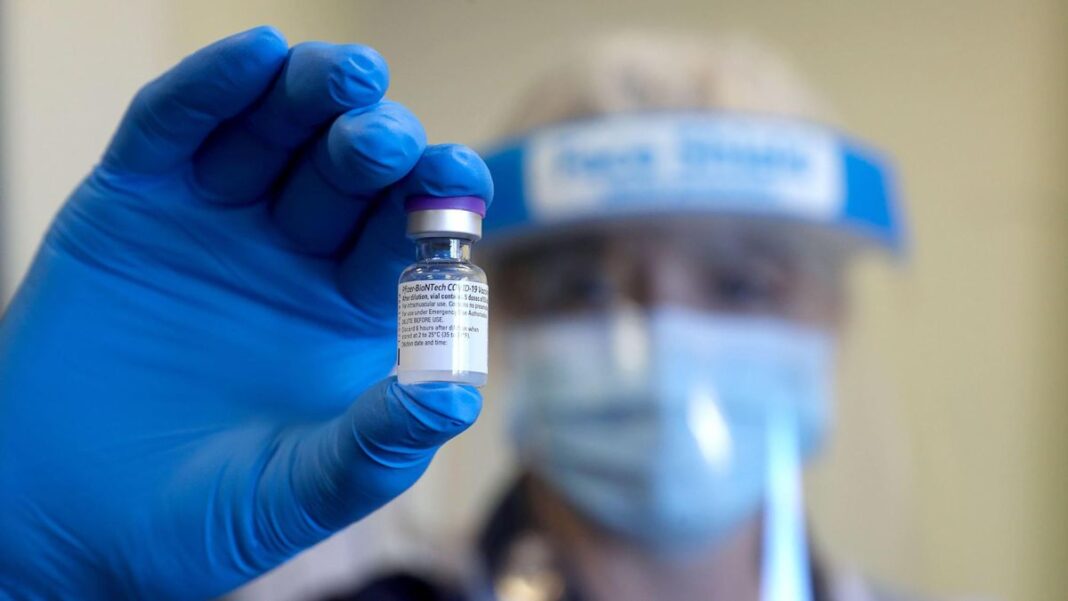A study shows that Pfizer vaccines were significantly more likely to produce proteins that some experts believe may increase cancer and autoimmune risk.
There may be around a 1 in 10 chance that Pfizer mRNA COVID-19 vaccines will not generate spike proteins but something else, a new Cambridge study finds, raising concerns about autoimmune response among experts.
The study authors found that 8 percent of the time, Pfizer mRNA COVID-19 vaccines are mistranslated, leading to the formation of unintended proteins.
This mistranslation is primarily driven by Pfizer’s modification to their mRNA bases.
“Our work presents both a concern and a solution for this new type of medicine,” said leading author Anne Willis in the study’s press release.
One can think of mRNA vaccines as a set of instructions used to make spike proteins. Once the vaccine enters the cell, ribosomes interpret the mRNA instructions to make proteins, like spike proteins.
If the instructions are misinterpreted, errors in the final protein may be produced. Some errors are minor, like misspelling one word in a text, while others are more detrimental.
This misinterpretation is called a frameshift, which occurs when one or two mRNA bases are skipped. Since mRNA bases are translated in sets of threes, skipping a base would affect all the sequences downstream, leading to new proteins being formed.
“Frameshifting results in the production multiple, unique and potentially aberrant proteins,” immunologist Jessica Rose wrote in her Substack article discussing the study.
While most naturally occurring mRNA contains uridine, the Pfizer mRNA vaccines use N1-methylpseudouridine. This makes the mRNA sequence hardier and less prone to breakdown by the immune system. Pfizer’s opting for less commonly occurring mRNA bases is also why some scientists call the mRNA vaccines modified RNA, or modRNA.
By implementing additional edits to the mRNA sequences, the authors were able to reduce further frameshifted proteins.
Although “there is no evidence: that the aberrant proteins generated by Pfizer vaccination are associated with adverse outcomes, for future use of mRNA technology, it is important that “mRNA sequence design is modified” to reduce these shifts, the authors concluded.
Among Tested Vaccines, Only Pfizer Has the Issue
Apart from frameshift errors, the N1-methylpseudouridine modification can also slow down and interrupt mRNA translation to protein, potentially leading to shorter-than-expected protein sequences.
By Marina Zhang






